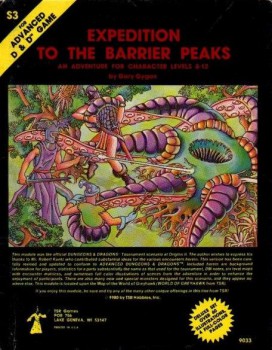A Lone Candle, Part 2

If genre-shifting mid-tale is unwelcome in film and literature, where is it sometimes acceptable? I’ve found only one medium in which this sort of thing is easily done, and generally welcomed, if done right.
Role playing games.
Hear me out on this. Role playing games are a lot more fluid, since the storyline just keeps going after the genre-shifted adventure. The players know that, sooner or later the story will return to the main genre, and so they’re more willing to play along. That’s been my experience, anyway.
In the early 90s, I was set to release the flagship product in a role-playing system that was unlike anything else on the market. (After Gen Con one year (I think 1994), I decided to scrap the lineup, or at least wait, because a new upstart game called Magic: The Gathering made its debut, and I suspected it would have dire consequences for the role playing world. How right I was!) Since then, of course, the so-called Universal System wave has come and gone (or come and lingered, as the d20 System shows), but back in the day, it was a strange idea.
While testing my game, I was running a science fiction storyline that segued into a western. The players rode around on a tech-impaired planet for a while, accepting pretty quickly the new conventions they were operating under. It was six-shooters and horses, for the moment.
But then things started to get strange. Local folklore began to become uncomfortably real. The local “Native American” tribesmen may not be what they seemed. And a vengeful spirit was wreaking havoc. What was going on? the players had just settled into the Western, but circumstances kept shifting. Turns out that it was all science fiction, in the end. No magic, no spirits. But while playing, the group accepted the odd circumstances without a fuss.
Movie-goers might have walked out, and readers might have put down the book. Why? Because the expectations of these audiences seem to be more important than the actual details of plot or characterization, as the ocean of romantic comedy demonstrates. With role playing games, the rules alone act as enough of an anchor. Simply having a character sheet in from of them seemed to stabilize the players, keeping them rooted. In books and film, the characters themselves are a part of the unknown. Everyone is an NPC, of sorts.
The best “official” genre bending I ever saw was an adventure module for AD&D (1st addition, yikes!). It was a module called Expedition to the Barrier Peaks. In this module the players would pit their magic and fantasy know-how against the contents of a huge derelict spaceship. This caused a few problems, in practice, since A.) everyone usually knew they were playing this module, and B.) suppressing their knowledge of technology is pretty hard to do. Pretending dangerous ignorance for your characters is tough sledding, as it turned out, and exhausting to boot. Expedition, for all its promise, is one module I remember getting consistently poor results with.
Uncertain genres only work in an environment of cordial ignorance. When the viewers, readers, or players are not sure what they’re getting into, and are okay with that. But with all of the advertising that goes into distributing a product, this potential is rarely achievable. Movie posters make the genre obvious instantly, as do most book covers. And if the book’s cover painting doesn’t, the small genre label on the spine usually does the trick.
This is too bad, because there are rare and unique moments of discovery waiting in fiction, if we would simply allow them.
I remember when “Call of Cthulhu” cwas released. My view on it was “it’s a great idea – but the players shouldn’t know that’s what they are playing”. A truly atmospheric CoC campaign should have started out entirely “mundane”, but of course with experienced FRP players, having them play (say) detectives or journalists or scholars in 1920s America was going to be a tough sell. And the moment CoC existed on the shelves, the jig was effectively up.
It’s pretty hard to surprise remotely experienced FRPers, but it can be done, and it’s fun when it works. Best in short-term, limited-length, specific-goal campaigns rather than long-term open-ended play, though.